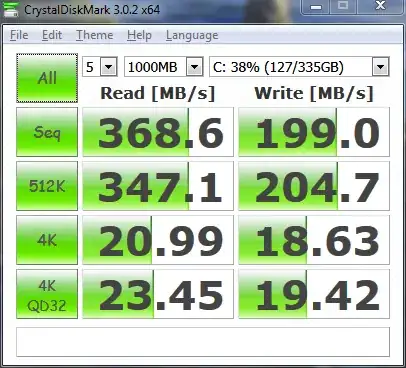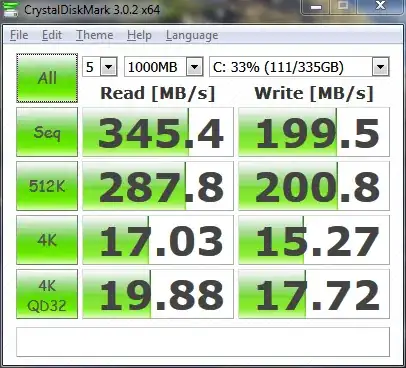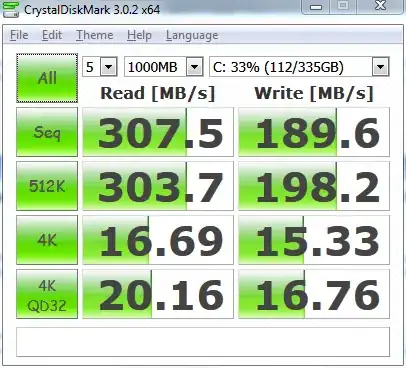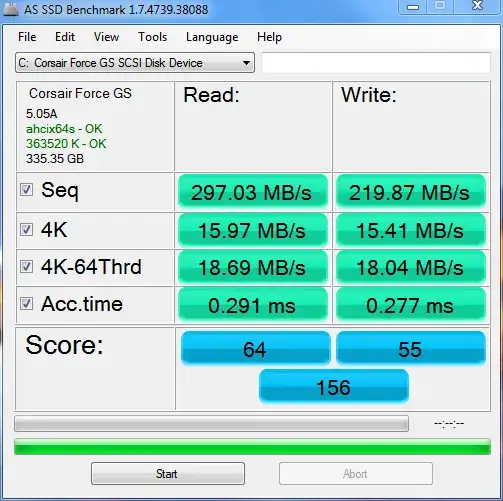I've read some years-old posts that say you should tweak some options in Windows to get the best performance. But then I read that this is no longer necessary with today's SSDs.
I installed a new Corsair Force GS (360GB) SSD to replace my existing HDD. It claims read/write of 555/530MB/s. Here is what I'm getting:
CrystalDiskMark Results - Initial Run

CrystalDiskMark Results - After BIOS Update

CrystalDiskMark Results - After Driver Updates (All out-dated drivers including AMD RAID and Chipset drivers.)

AS SSD Benchmark - After Driver Updates

Winsat Results - Initial Run
Windows System Assessment Tool
> Running: Feature Enumeration ''
> Run Time 00:00:00.00
> Running: Storage Assessment '-seq -read -n 0'
> Run Time 00:00:05.12
> Running: Storage Assessment '-ran -read -n 0'
> Run Time 00:00:00.53
> Running: Storage Assessment '-scen 2009 -drive C:'
> Run Time 00:00:52.35
> Running: Storage Assessment '-seq -write -drive C:'
> Run Time 00:00:03.57
> Running: Storage Assessment '-flush -drive C: -seq'
> Run Time 00:00:00.73
> Running: Storage Assessment '-flush -drive C: -ran'
> Run Time 00:00:00.80
> Running: Storage Assessment '-hybrid -ran -read -n 0 -ransize 4096'
NV Cache not present.
> Run Time 00:00:00.01
> Running: Storage Assessment '-hybrid -ran -read -n 0 -ransize 16384'
NV Cache not present.
> Run Time 00:00:00.00
> Disk Sequential 64.0 Read 285.77 MB/s 7.6
> Disk Random 16.0 Read 63.40 MB/s 6.7
> Responsiveness: Average IO Rate 0.49 ms/IO 7.9
> Responsiveness: Grouped IOs 6.86 units 7.7
> Responsiveness: Long IOs 1.36 units 7.9
> Responsiveness: Overall 9.35 units 7.9
> Responsiveness: PenaltyFactor 0.0
> Disk Sequential 64.0 Write 343.30 MB/s 7.9
> Average Read Time with Sequential Writes 0.185 ms 7.9
> Latency: 95th Percentile 0.813 ms 7.9
> Latency: Maximum 2.624 ms 7.9
> Average Read Time with Random Writes 0.284 ms 7.9
> Total Run Time 00:01:03.76
Note: This was not a clean install of Windows 7. I copied the partitions from my original HDD to the new SSD and then used GParted to align the first partition (System Reserved) to 1MB/MiB.
So, what's the scoop? Can I do anything to squeeze top performance out of my new SSD?